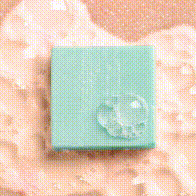No, You Don't Need an At-Home Test to Monitor Your Vaginal Microbiome

Every woman has a unique vaginal microbiome, composed of microorganisms (bacteria) that live in it. Like the bacteria that live in your gut, your vaginal flora help your body stay healthy by protecting you from infections, miscarriages and even cervical cancer.
"The most crucial inhabitant of the vagina is a bacteria known as lactobacillus," said Kelly Culwell, M.D., a board-certified OB-GYN and nationally renowned women's health expert. "This organism produces lactic acid, which serves to prevent the growth of pathogenic bacteria/fungi."
When the balance or concentration of this good bacteria is altered, your likelihood of contracting a yeast infection or bacterial vaginosis (BV) is higher. An imbalanced vaginal pH can also lead to infertility.
Culwell added, "These infections, particularly BV, can have adverse effects on increasing the risk of PID [pelvic inflammatory disease], making one susceptible to infertility and/or preterm birth/adverse perinatal outcomes."
What causes an imbalanced vaginal microbiome?
As you may remember from high school chemistry, pH is the measure of how acidic or alkaline (basic) something is. The pH scale is numbered from 0 to 14, with a measurement of 7 indicating something is neutral. Anything below 7 is acidic, while anything higher is basic. A healthy vaginal pH is moderately acidic, typically falling between 3.8 and 4.5.
A woman's vaginal microbiome can be affected by numerous things that can throw the pH off, making you more susceptible to infection and disease. Some things that affect vaginal pH are out of your control, including age, genetics and certain medications. But there are many things you can do (and some you should not do) to keep your vaginal microbiome healthy and balanced.
Harsh soaps, spermicidal foams, diaphragms and douching can all negatively impact your vaginal health. You should also avoid using any perfumes or scented fragrances in or near your vagina. These items can strip your vagina of its good bacteria and leave it susceptible to bad bacteria.
Meanwhile, maintaining a balanced diet can help support your reproductive system. Fermented foods—including kimchi, pickles, sauerkraut and kombucha—can promote a healthy pH level.
"Probiotics, yogurt consumption, acidophilus tablets or suppositories can increase the concentration of these lactobacillus bacteria," said Kecia Gaither, M.D., who is double board-certified in OB-GYN and Maternal-Fetal Medicine and director of perinatal services at NYC Health and Hospitals/Lincoln.
However, as Culwell noted, "There is no data to currently support specific vitamins or probiotics as a way to improve your microbiome." So, while scientists remain optimistic about the benefits of probiotics for your vaginal health, more studies are needed to prove efficacy.
Lastly, avoiding unprotected sex can also help, as semen can change your vaginal pH.
Can I test my vaginal microbiome at home?
An increased awareness about the vaginal microbiome has brought with it companies intent on capitalizing on this knowledge. A variety of products have hit the market in recent years—including at-home tests—that claim to help you monitor and improve your vaginal health. But do these products actually help? Experts say no.
"We don't really have enough data to support the use of at-home tests as a way to monitor or improve your vaginal microbiome," said Culwell.
While at-home tests may be able to determine some evidence of an altered vaginal microbiome, it's best to see a healthcare provider who "can better assess the underlying etiology (cause of the issue) impacting the vaginal microbiome," said Gaither. "Additionally, in conjunction with a nutritionist, the provider can better advise and recommend helpful therapies."
'If you have no symptoms, that means no testing. If you have symptoms, that means an exam and then appropriate testing.'
As Jen Gunter, M.D., an OB-GYN and author of "The Vagina Bible," explained in her analysis of Evvy, an at-home vaginal microbiome test, these types of tests create more questions than they answer, especially with someone who has no indication of a condition. "We don't recommend any of this testing for someone with no symptoms," Gunter stated.
"In medicine, we don't recommend testing for 'everything,'" Gunter continued on her blog. "We recommend testing that will help us answer questions. If you have no symptoms, that means no testing. If you have symptoms, that means an exam and then appropriate testing. While some of the tests included in Evvy may be part of a workup of symptoms, most of them are not."
Gunter added that for those who do take a test like Evvy, "there is literally no data to tell you what to do with most of the results." This means "if you bring your test results to your OB-GYN, they won't know what to do with most of it either." Which can be frustrating for both the patient and the doctor.
Instead of relying on an at-home test that will leave you with potentially unusable information, Culwell said to look out for symptoms that could indicate an imbalance, such as increased vaginal discharge, discharge odor or vaginal irritation. If you have any of these issues, talk to your healthcare provider, who can then perform tests that look for specific infections and other issues.




















